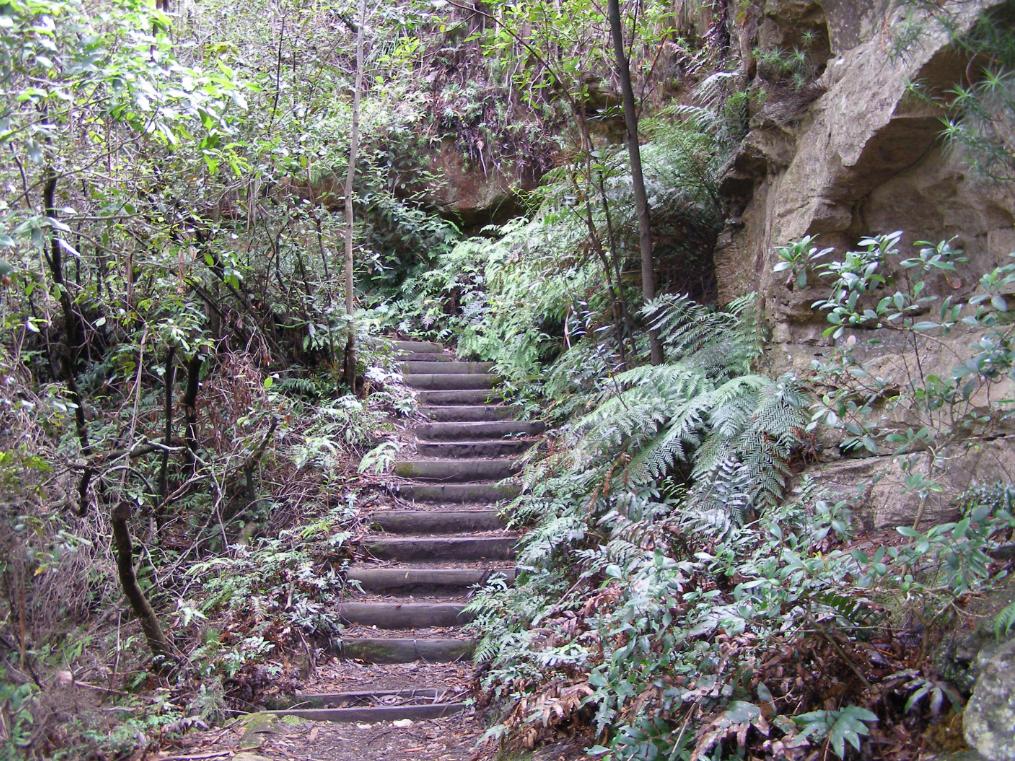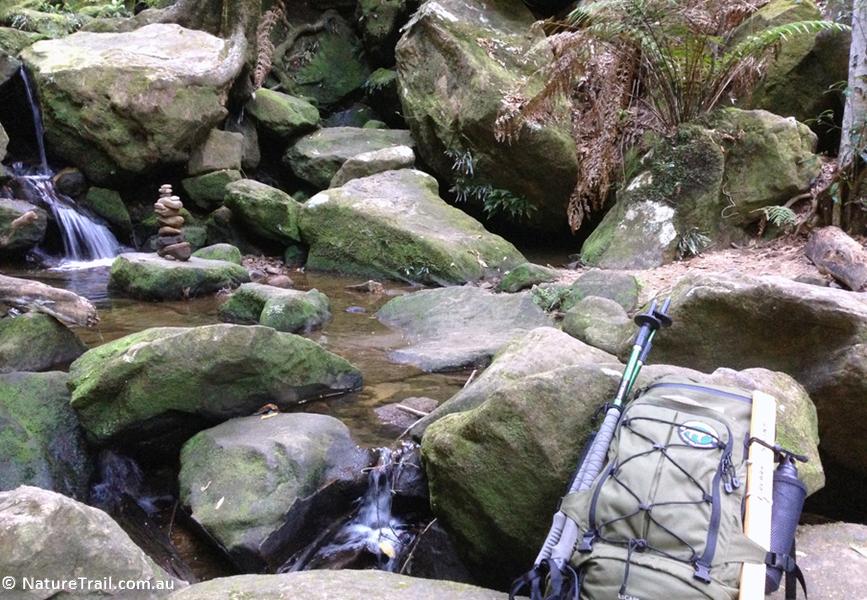Our Eco-Hiking Style
 ‘Eco-bushwalking‘ is about leisure walking in the natural environment while conscientiously respecting the ecology you’re freely benefiting from.
‘Eco-bushwalking‘ is about leisure walking in the natural environment while conscientiously respecting the ecology you’re freely benefiting from.
The term is a social construct comprising ‘eco‘ and ‘bushwalking‘ into a new concept. The ‘eco’ bit is an abbreviation for ecological, and the ‘bushwalking’ bit is the Australian vernacular for hiking.
In our view, the construct ‘eco-bushwalking‘ means a specialised form of hiking that respects ecology.
Respecting ecology when as a hiking bushwalker means sticking to existing tracks, not ‘bush-bashing’ or ‘trailblazing’ as so many overenthusiastic bushwalking clubs culturally seem to persist with, as though compelled by a safari quest to tame Nature.
Respecting ecology means no camp fires which demand collecting and burning forest timber and oftentimes are left to smoulder and start bushfires that devastate forest ecology.
Respecting ecology means no harm to ecology – the mantra of taking only photos and leaving only footprints.
Respecting ecology means a few quiet hikers along a bush track that leave wildlife alone, focus on observing Nature, not tramping the landscape, creating a racket and oblivious to the ecological communities they pass through.
 Clubber Bushbashing: “We are determined to tame this wilderness, just as our colonial ancestors had an exploratory right!”
Clubber Bushbashing: “We are determined to tame this wilderness, just as our colonial ancestors had an exploratory right!”
As novice bushwalking clubbers, we disturbingly witnessed and participated on club culture bush-bash bushwalking. Concerned and objecting we resigned.
We now openly criticise the harmful club bushwalking culture reminiscent of the Baby boomer exploitative righteousness reminiscent of colonial explorers of yore invading and controlling Nature in the selfish anthropocentric ideal of attaining ‘eye candy’ – that wilderness exists for the bushwalker’s adventurous spirit – an unexplored wilderness to be known, mapped and tamed.
Such arrogant exploitative mindset is the antithesis of Eco-Bushwalking.
 Babyboomer bushbashers may have left their Pith Helmet, tobacco pipe and Tawny port behind these days; but trashing ecology for exploratory quest remains culturally entrenched.
Babyboomer bushbashers may have left their Pith Helmet, tobacco pipe and Tawny port behind these days; but trashing ecology for exploratory quest remains culturally entrenched.
Thankfully, leapfrog innovations in outdoor technology continue, such that the retro pith helmet, machete-bonfire imperative – brainless exploiters, hoons, vandals – have been long rendered unjustifiable. Responsible walkers now stick to the tracks provided.
Respecting ecology as a bushwalker means walking quietly in small numbers (7 or less) through the natural environment as a guest in the home of local wildlife and habitat. One might just bare witness to wildlife this way.
Respecting ecology as a bushwalker means taking an inquisitive non-anthropocentric interest in the natural environment. Some call this philosophy ‘Deep Ecology’.
Respecting ecology as a bushwalker means giving wildlife personal space, leaving saplings, flora and bushrock intact.
Respecting ecology as a bushwalker means minimal impact – leaving no trace that you were ever there, no rubbish, no camp fire, no flattened/cleared ground where a tent had been, and any toileting 100m or more from a watercourse dug 15mm deep and backfilled.
Eco-bushwalking is simply respectful best practice bushwalking – a no brainer.
 Nature Trail is in the process of attaining respectful eco-accreditation.
Nature Trail is in the process of attaining respectful eco-accreditation.
